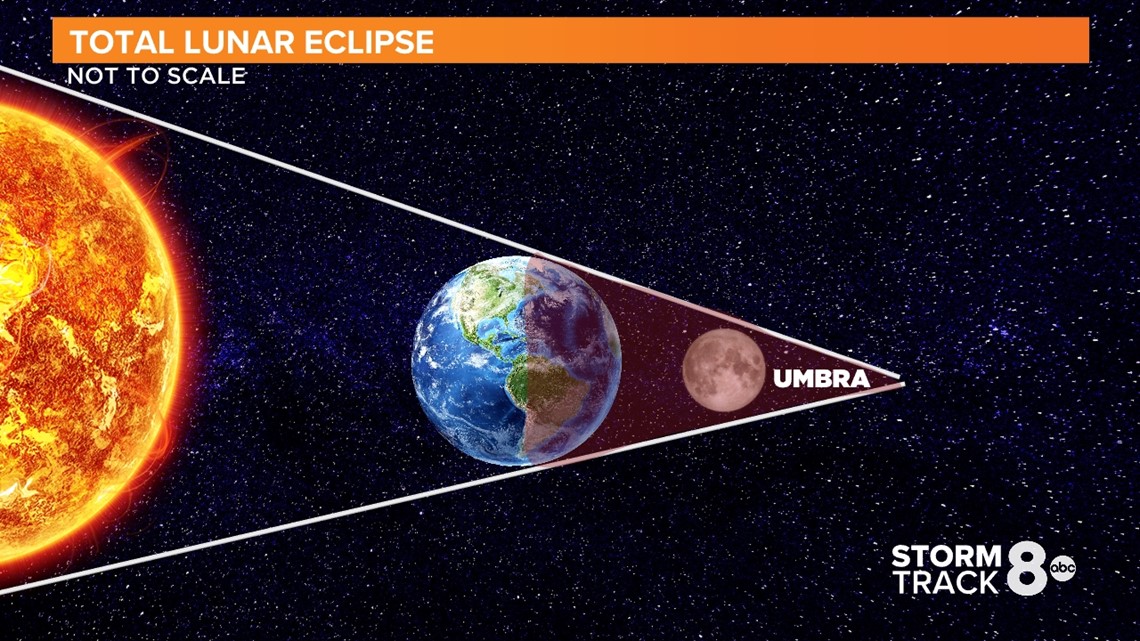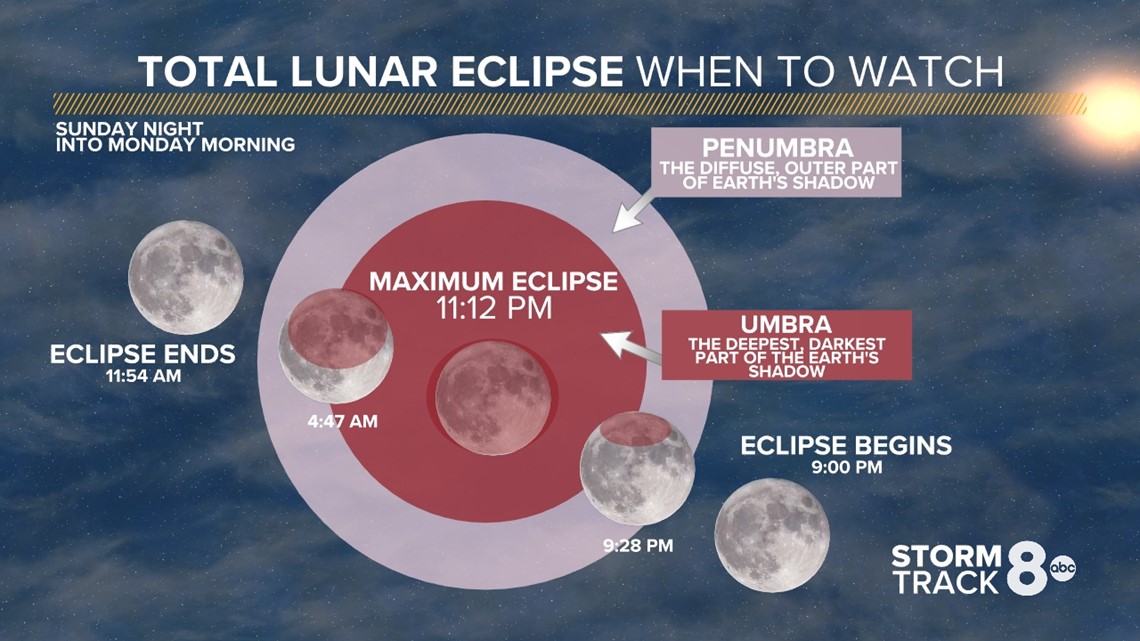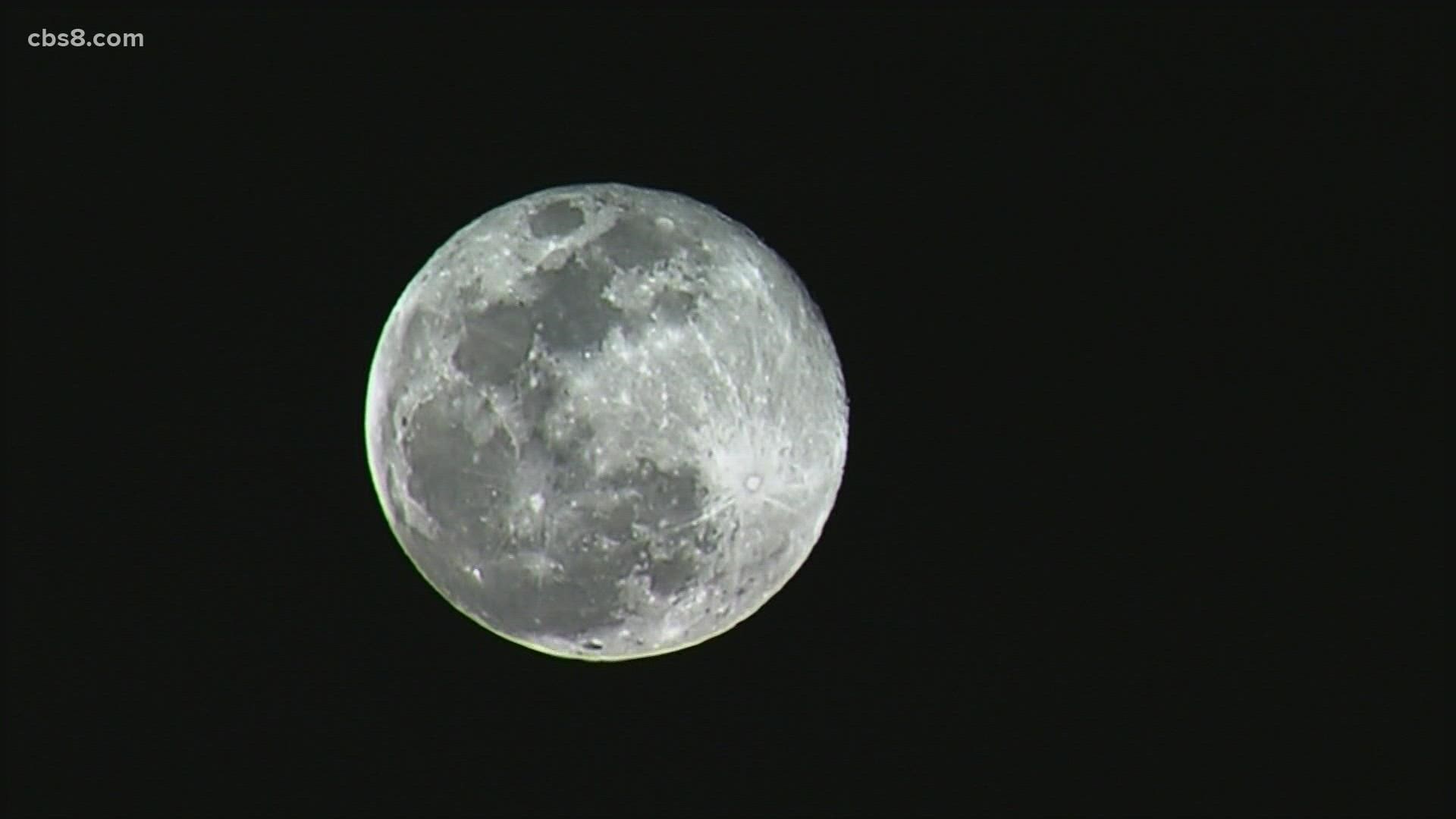MOLINE, Ill. — Get ready for a spectacular sight in our sky in the coming days as May's full moon, known as the Flower Moon, will take place during a total lunar eclipse on the evening of Sunday, May 15. The event will last for about an hour and a half.
The name, "Flower Moon," originates from the spring blossoms that begin appearing this time of year.
During a total lunar eclipse, the Earth passes directly between the sun and the moon while Earth's shadow is cast upon the moon's surface. The blood-red appearance is a result of blue light being filtered out while red light still passes through. The moon crosses the southern half of the shadow's centerpiece, creating a unique difference in brightness and color between the north and south halves of the moon and a three-dimensional appearance.
What makes this total lunar eclipse unique is that it will be taking place during a time when the moon is orbiting closest to Earth, known as a "super moon."


Particles in the atmosphere can also play a role in the appearance of a total lunar eclipse, with the plant ranging in color from blood-red to brownish-gray.
At approximately 9:28 p.m. CDT Sunday, May 15, the moon will enter the umbra or the inner part of the Earth's shadow. The total eclipse will begin at 10:29 p.m. CDT before coming to an end at 11:54 p.m. CDT. The moon will exit the umbra completely by 12:56 a.m. CDT Monday.


This total lunar eclipse will be visible throughout much of the U.S., especially from the Midwest and points east, and you won't need any special equipment to view the event. It will be visible to the naked eye.

